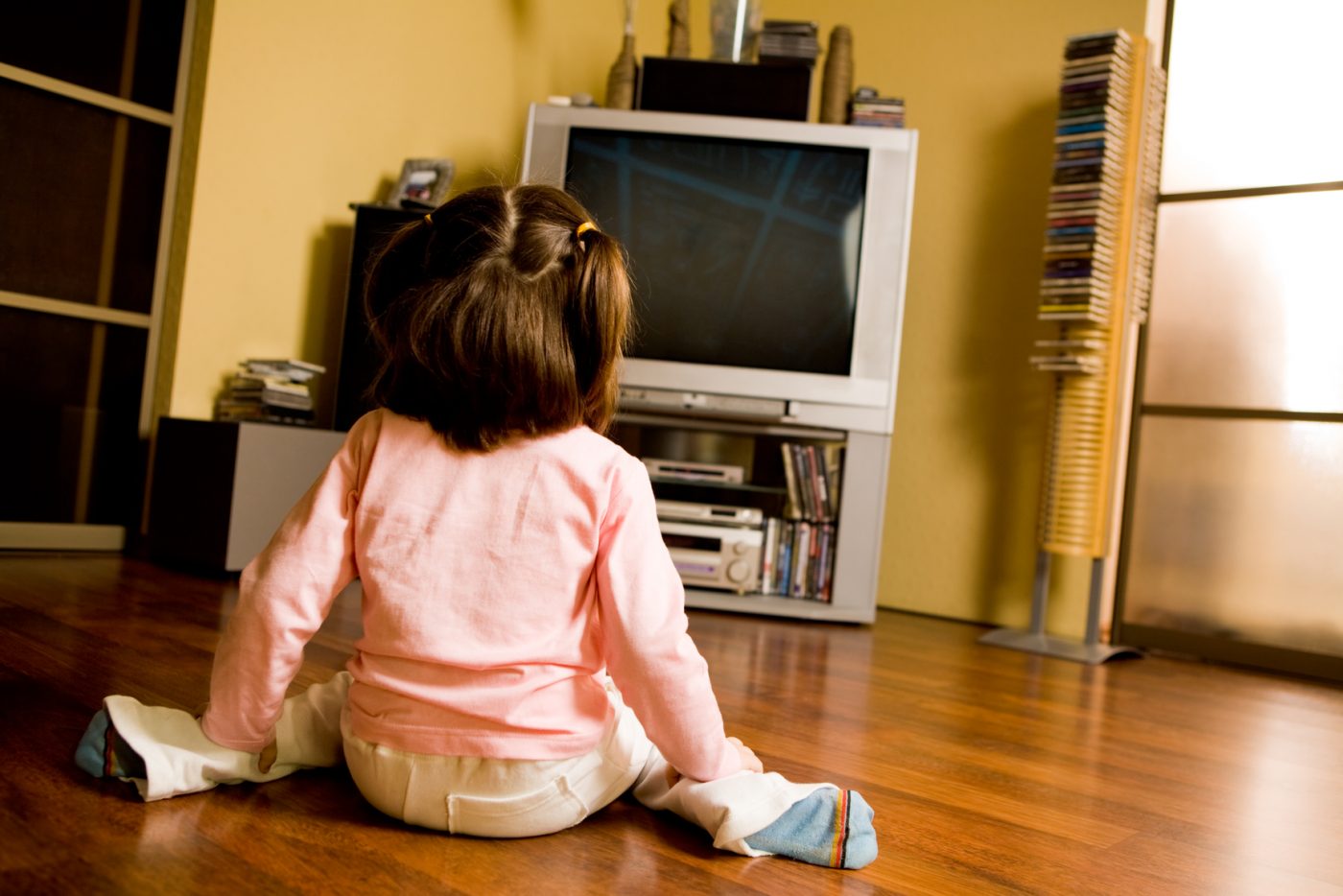
Broadcast television has changed out of all recognition from when programmes for young children were first produced. All those moons ago there were no children’s channels such as CBeebies, no breakfast television, no cable television, no videos, no DVDs, no television on demand and no YouTube. Instead, there were a few ‘Watch with Mother’ type programmes that were shown for a short period of time each day with programmes such as ‘Finger Mouse,’ ‘Play School’ and ‘Sesame Street.’
In most people’s homes today it is possible to instantly find and select a television programme that your toddler will like to watch from children’s programming, family films and cartoons. The rare times that children today watch a scheduled, broadcast programme they cannot understand why they have to wait a week for the next episode. They are used to the concept of 24 hour television and instant gratification.
It can be very tempting to take advantage of this wall-to-wall access, so if your toddler won’t sleep or you need to get something done or you want her to sit still and eat – TV, the ultimate convenient babysitter, is there ready and waiting. I say this not as disapproving ‘expert’ but as a parent who has also struggled in my relationship with toddler TV.
Several scientific studies of children have reported that too much television and screens can lead to increased levels of attention problems, problems in school, sleep disturbance, obesity and other eating disorders.
The American Academy of Pediatrics (AAP) came out in 2011 with a stark recommendation that babies and toddlers under the age of two should not watch any television. This was a ‘better safe than sorry’ recommendation and they said…
This was a conclusion they came to due to the fact that a child’s brain develops rapidly during these first critical years and interacting with other people and physical play is better for optimal development than television. For children older than 2 years the AAP recommends no more than 1-2 hours per day of what they term ‘high-quality’ content. These include programmes that have been designed with child development in mind e.g., ‘Teletubbies,’ ‘Sesame Street,’ ‘In The Night Garden’ and ‘Something Special.’
A recent study examined how a parent’s use of language changed when television was on in the background. The researchers reported that the quantity of both words and phrases and the number of new words used by parents dropped significantly when the TV was on.
This is important as we know that the quality and quantity of conversation between parents and toddlers drives language development. Indeed one of the studies authors concluded,
It is important to be firm with yourself and your toddler when it comes to screen time. If the rules are specific it makes it easier to enforce them and much easier for your toddler to accept them.
So, if you choose to let your toddler watch any television my suggestions would be:
As a parent of a toddler you probably feel like flopping in front of the television after a long day – or even after an exhausting outing. However, it’s worth remembering that toddlers look to their parents and model your behaviour, so if you drop litter, they will drop litter; if you swear, they will swear. The good news is that having a toddler around is the perfect time to reassess some of our own bad habits.
Some bad television habits that you might want to rethink include:

Toddlers do not tend to get bored so don’t worry that you need to offer her television to fill in her day. Your toddler will be more engaged and happy spending time with you chatting, dancing, reading books, helping with jobs around the house e.g., putting clean clothes into a pile for each family member or playing pairs with the socks. The technology we are allowing our toddlers to use is very young and it’s hard to know the impact long term, let alone how technology will change over the coming years. As a parent, you need to protect your toddler from harm and help her interact with technology in a positive and life-enhancing way.
American Academy of Pediatrics (2011) ‘Policy Statement – Media Use by Children Younger Than 2 Years’ PEDIATRICS Vol. 128 No. 5 November 1, 2011 pp. 1040 -1045 (doi: 10.1542/peds.2011-1753)
Plowman L (2015) Researching young children’s everyday uses of technology in the family home. Interacting with Computers, 27 (1) 36-46.
Sigman (2005) ‘Remotely Controlled: How television is damaging our lives’ Vermilion
Tiffany A. Pempek, Heather L. Kirkorian, Daniel R. Anderson. The Effects of Background Television on The Quantity and Quality of Child-directed Speech by Parents. Journal of Children and Media, 2014; DOI:10.1080/17482798.2014.920715